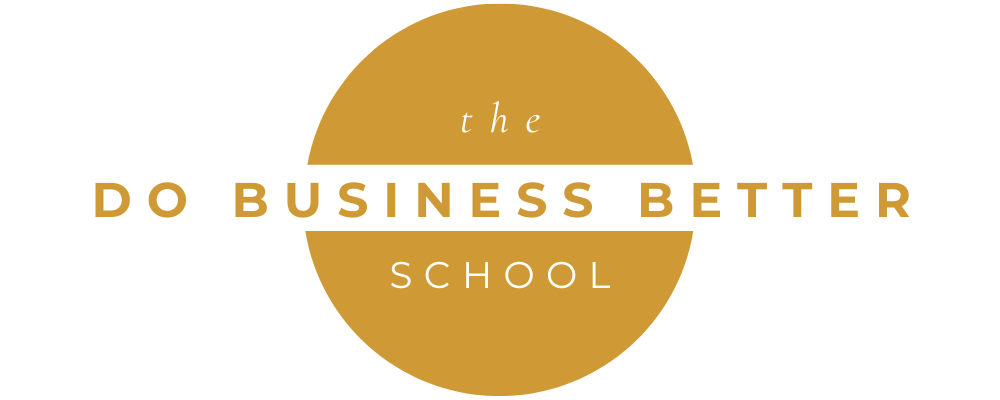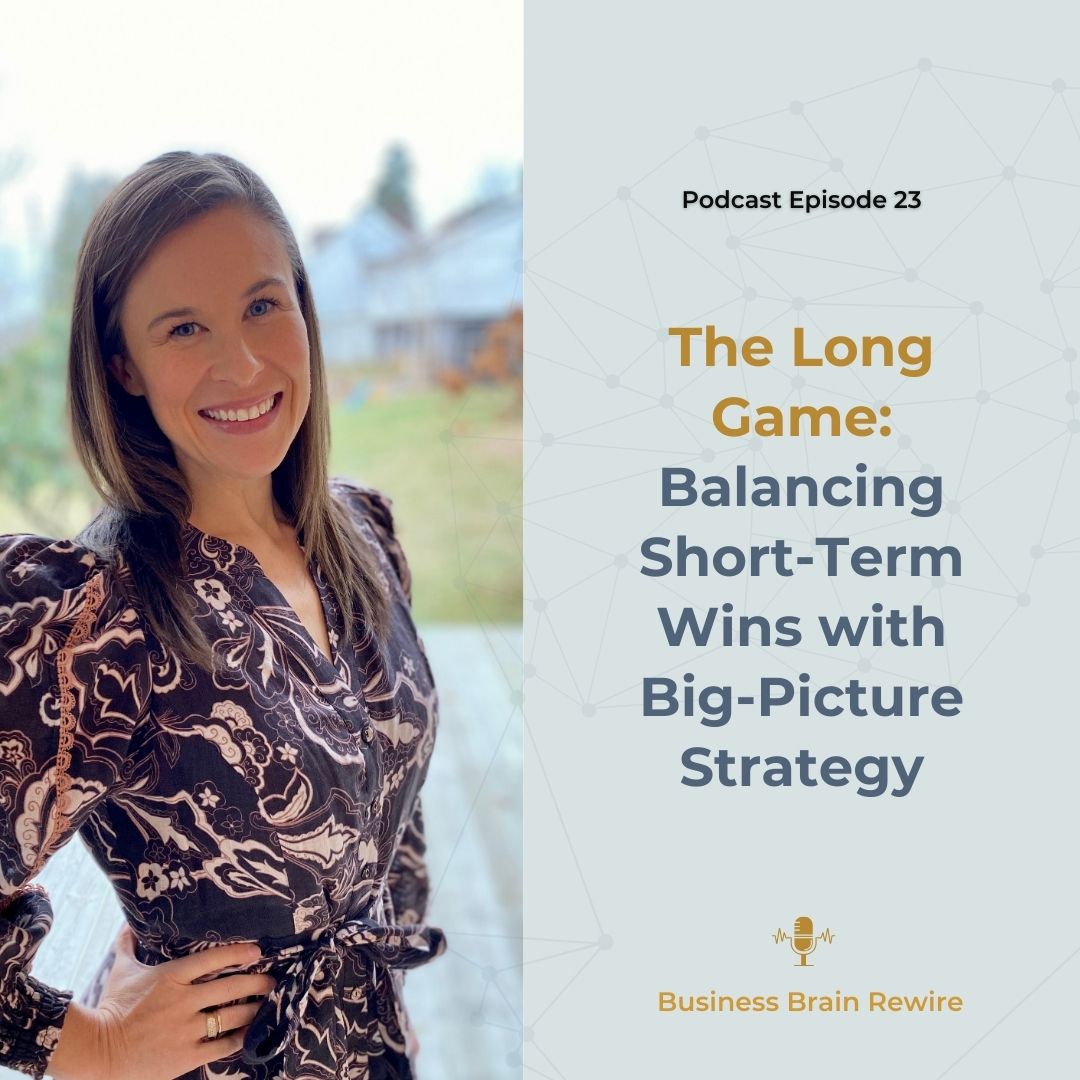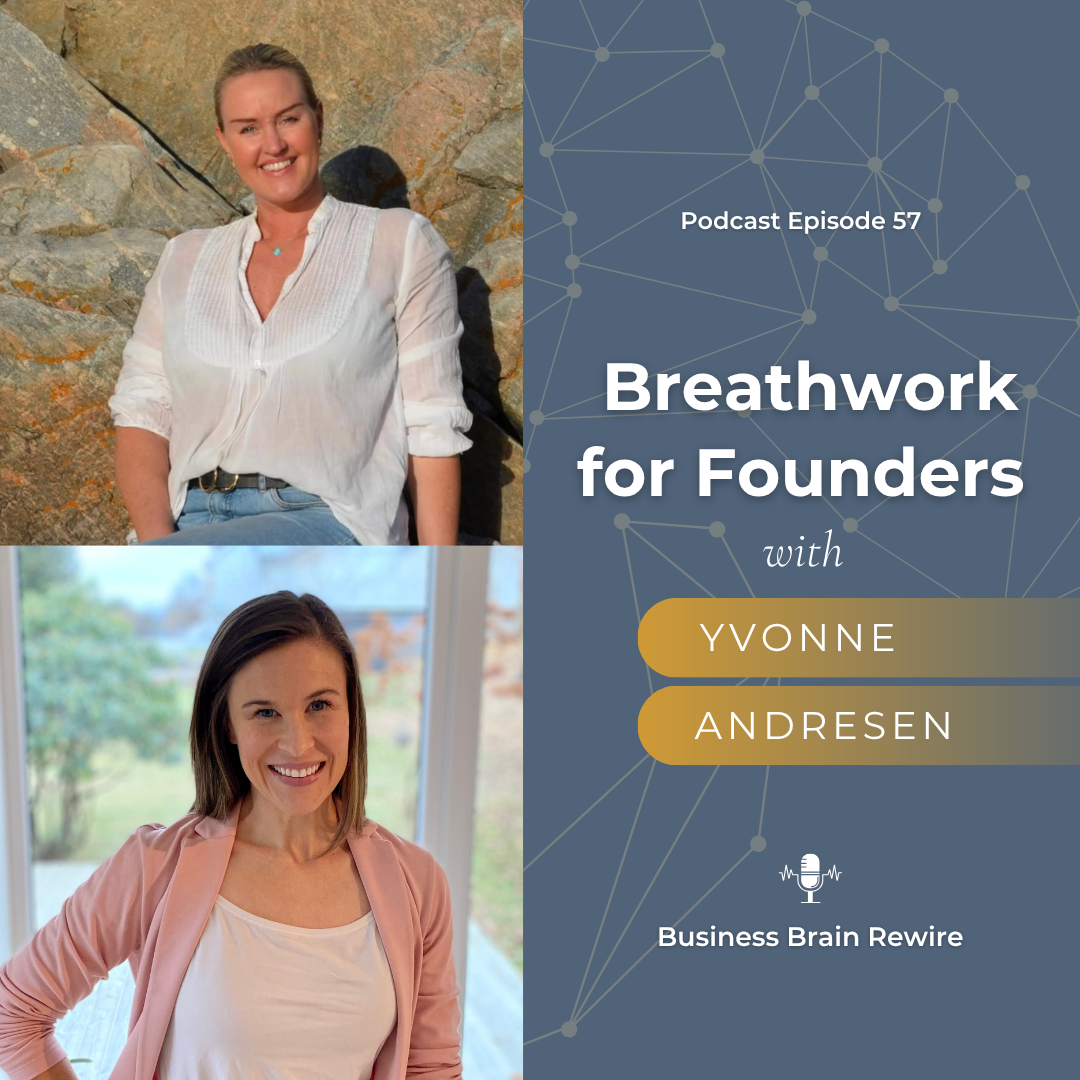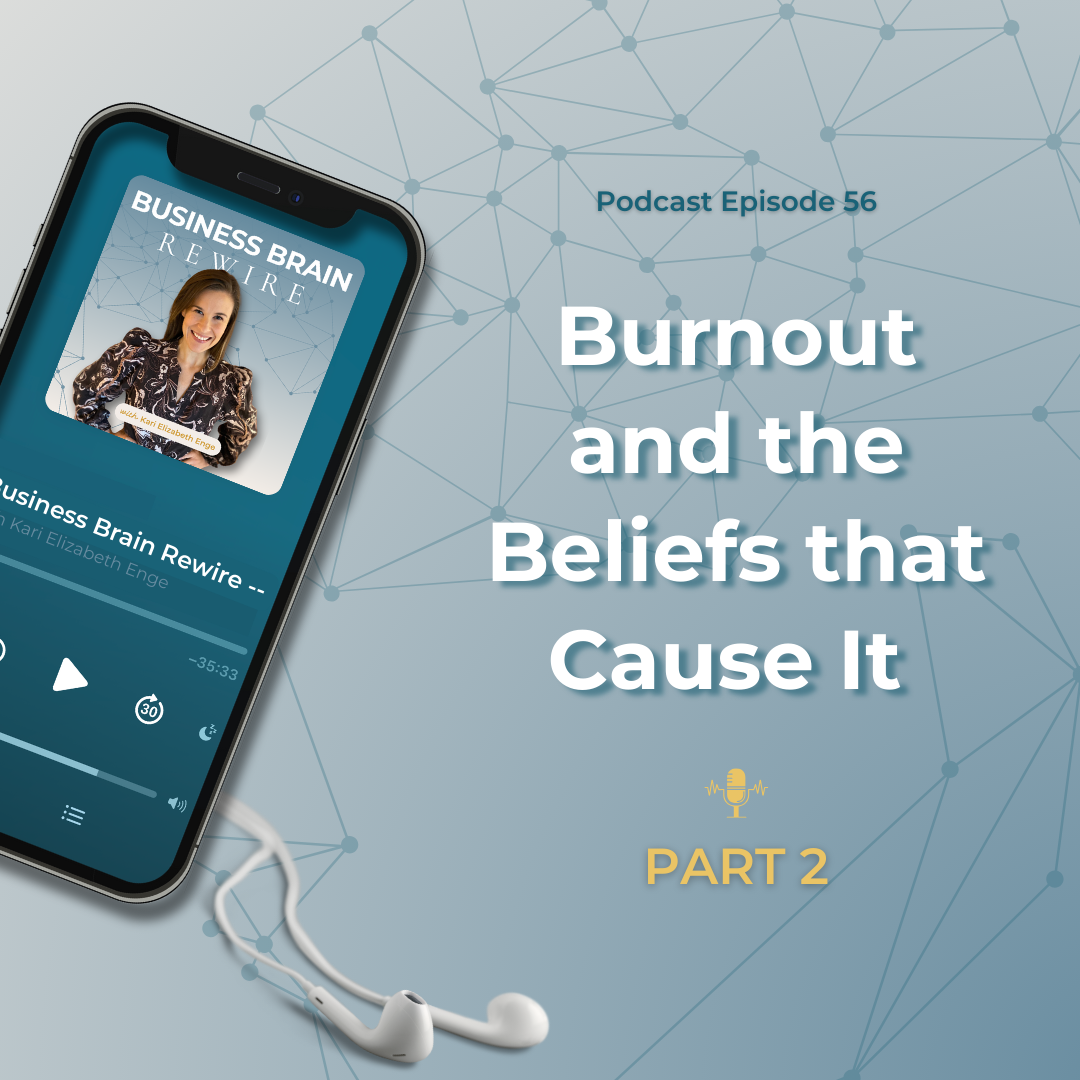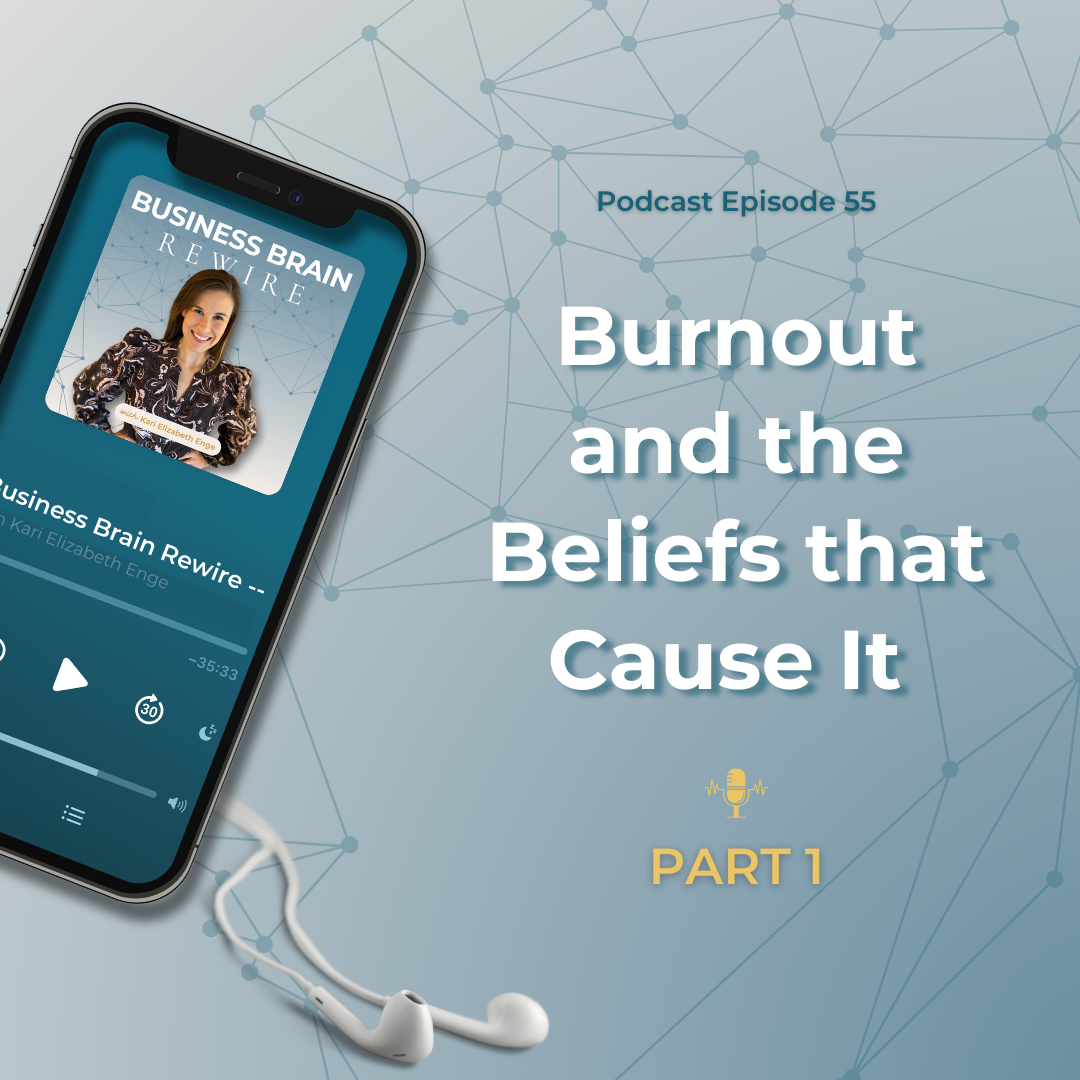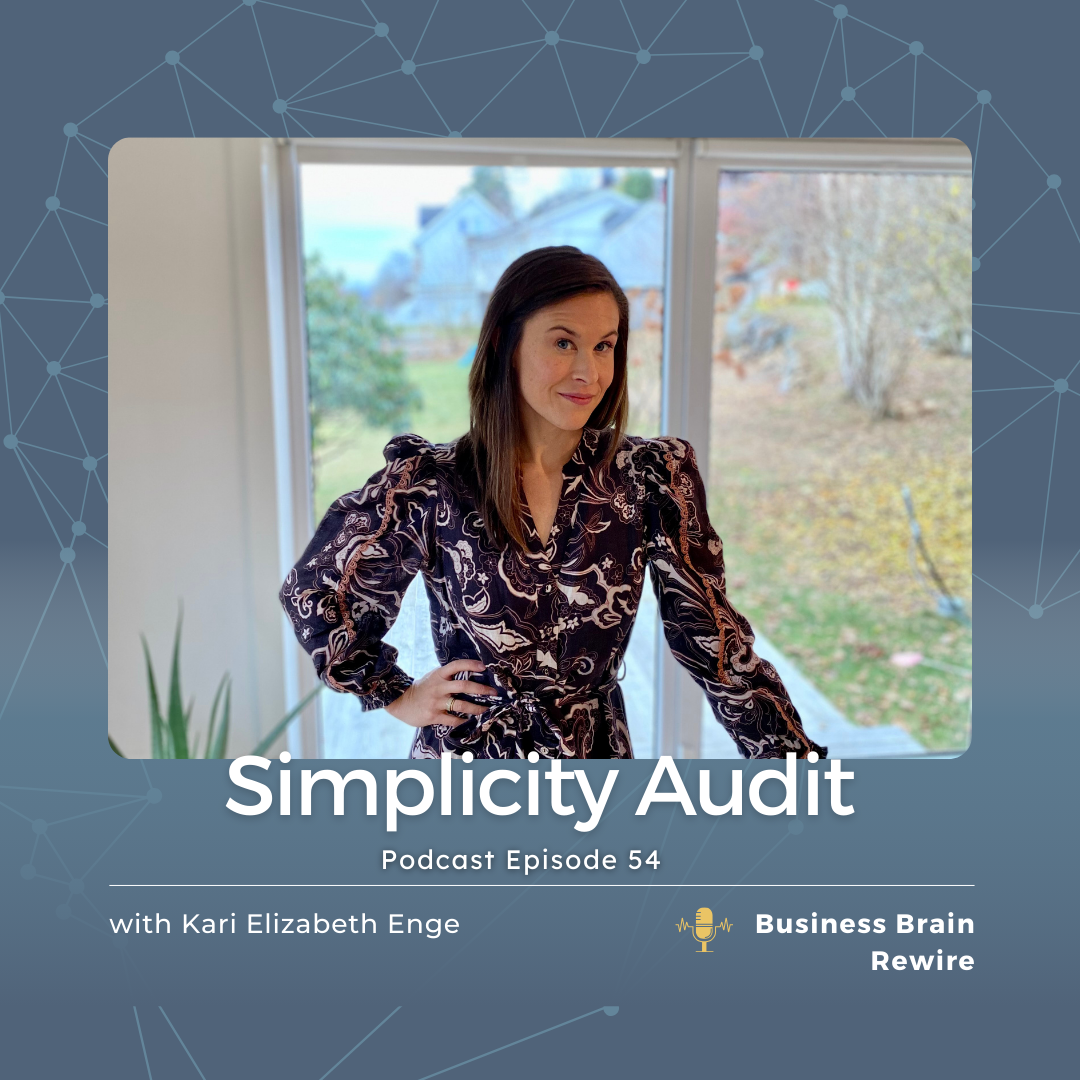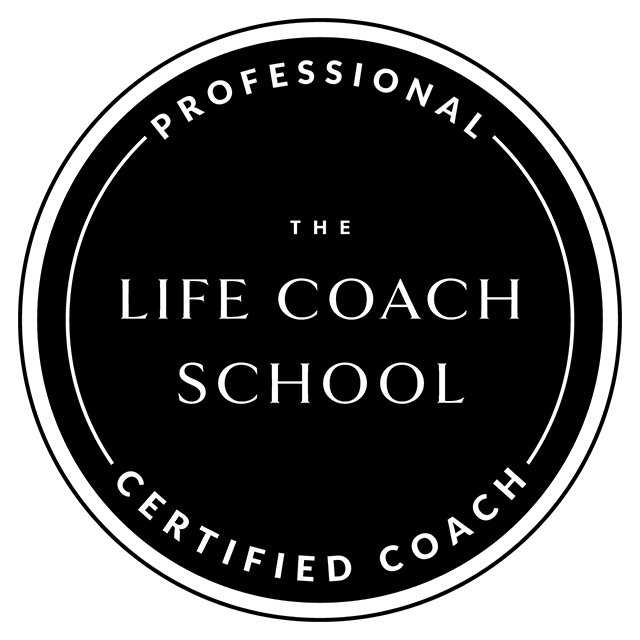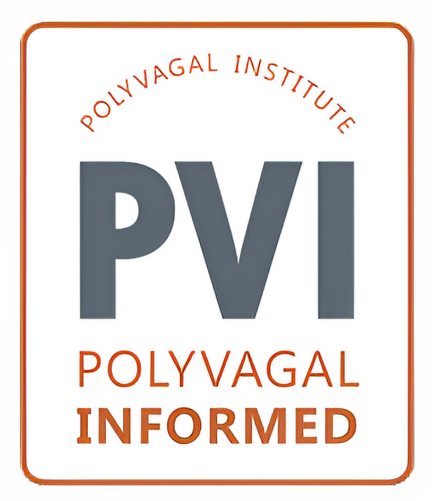As an entrepreneur, it’s easy to get caught up in the day-to-day hustle. But what if playing the long game could help you achieve sustained success? Hear me out and let me tell you about this mindset shift that will help you thrive as a purpose-driven company so your personal life and wellbeing can thrive alongside it too.
What is the Long-Game Mindset?
I sit down with purpose-driven founders every day, all day, and I help them to get where they want to go and bridge the gap between all the struggles and the things they need to figure out in a way that doesn’t sacrifice their personal life and their wellbeing. Here’s what trips them up the most: unhelpful mindsets.
Have you ever thought when you’re thinking about reaching the next goal, or maybe just going through the day to day of your business, that it’s a crunch time that it’s a critical time? Or like you really need to focus for the next, you know, X amount of days?
When you focus on short-term pressures, your brain literally goes into a survival mode. This mindset biologically changes your hormones and how your brain is operating. It creates stress that lowers your cognitive function, create emotional disconnection from your purpose and customers, and hinders your success.
What is happening in your central nervous system is that it’s causing you to ramp up things. It actually causes more problems than it fixes. Instead, it’s more helpful to adopt a long-term perspective, fostering patience and purposeful energy. Here’s a sneak peek into some of the helpful things I cover in today’s episode:
How You Get There is How You Stay There
Who you are now is who you’ll be at every level of success. It’s easy to think that things will feel easier after you figure out this next challenge. But if you’re overwhelmed or stressed now, those feelings won’t disappear once you reach your goals. Overwhelm and stress is a nervous system state that you need to learn how to be with and shift. This is a founder skill set. So, you need to address these feelings head-on now, before you reach the goal.
It’s about who you’re being, not what goal you’re achieving.
Introduction to the CEO Goal-Achievement System
I share four simple things that you should be doing every single day as a founder, that help you reach your goals with more ease. Mindset’s, central nervous system regulation, making good decisions, implementing and evaluating – these are all skill sets that you should be using and strengthening each day.
Every founder has areas for improvement. Reflect on your current mindset and behaviors, and take steps to shape a more effective, sustainable approach to business.
Remember: how you get there is how you stay there.
If you’re ready to become a more organized, effective, and confident founder while enhancing your personal life and wellbeing, Simply Sustainable is the program for you. I offer on-demand video lessons, practical tools, and monthly coaching calls so you have a goal-achievement system to plug your business into.
You’ll understand how your brain and body work and how to naturally improve performance while simplifying everything you do. The best part? These tools grow your business while improving personal life and wellbeing.
In This Episode, You’ll Learn:
- How a long-term mindset differs from the traditional founder approach that is taught.
- How to stay emotionally connected to your customers and why this helps
- Practical strategies to maintain balance and reduce stress as you grow.
- The importance of self-reflection and mindset adjustments.
Mentioned in Today’s Episode:
Learn DBB’s proven CEO Goal- Achievement System by joining the Simply Sustainable coaching program for purpose-driven founders.
The new Simply Sustainable program launched on September 10th with a special promotion for founding members until THIS Friday September 20th. Sign up early and score exclusive bonuses!
Transcript:
[00:00:00] Hello, and welcome to another episode of business brain rewire. I am feeling so complete today. I think that’s maybe the best way to describe it. I just launched the new group coaching program simply sustainable. And it feels like a birth to third child. And I’m so excited for all of the founders who are going to come in there and get supported and step into their CEO shoes and gain the goal achievement system that they need to really succeed in a sustainable way. I would love to have you join us.
[00:01:21] We’ve got the launch group and there’s lots of excitement over there. So make sure you check the bottom of the show notes today to get access to that. Today, I want to talk to you about: playing the long game. And how you can actually ramp up your success short term by taking a different mindset altogether about how you’re approaching your business. I sit down with founders every day, all day, and I help them to get where they want to go and to bridge the gap between all the struggles and all the things they need to figure out that are in front of them and how to make an action plan, a goal achievement plan in order to get what they want. In a way that doesn’t sacrifice their personal life and their wellbeing.
[00:02:11] And that feels really good and in alignment for them, One of the things that really trips them up is just taking a completely wrong mindset in general, about how they approach the day-to-day and actually how they reach the goal. And so that’s what I want to dive into a little bit today.
[00:02:32] So in order to start off this conversation, I want to share just a really typical statement that I hear in coaching conversations with founders. So you can understand, maybe if this is you currently, or if this has been you in the past. Have you ever thought when you’re thinking about reaching the next goal, or maybe just going through the date today of your business, that it’s crunch time that it’s a critical time. Or like you really need to focus for the next, you know, X amount of days.
[00:03:03] And then after that, like things are going to slow down. Or this feeling of, I need to just figure out this one thing in my business and then it will get easier. Have you ever thought that before?
[00:03:18] So I know when you think these thoughts, it feels really necessary. Like you’re just reporting the news, your brain’s like, yup, we really need to figure this out. We really need to focus in right now. We really need to deliver, we need to move the needle on this within this period of time. And it feels a little urgent. It might not feel like your house is burning down, but it might just be this low grade intensity.
[00:03:47] That’s just bringing you this sense of like, I’ve got to focus in.
[00:03:53] And what I want to offer you today is that, this is actually just a symptom of what’s actually happening in your mind as a founder. What is happening in your central nervous system and it’s causing you to ramp up things. It actually causes more problems than it fixes. So I know that it feels like it’s really necessary to bring a certain level of intensity and focus to what you’re doing right now.
[00:04:25] But the way that your brain is coming at it is actually going to end up causing the very thing that you’re trying to avoid. Right. Because when you think about okay, we’re going to just go into crunch time or we just have to really focus right now. You’re doing that because you want to be successful.
[00:04:44] You don’t want anything to fall through the cracks. You want to make that sale. You want to make that deadline. You want to make it happen. And when you approach the problem like this, it actually causes a chain reaction of events in your body with your central nervous system. It creates certain negative feelings in you. Like pressure, overwhelm, hypervigilance, a fast paced as sort of urgency to problem solving.
[00:05:12] It creates more complex ideas that come into your head that are actually not necessary. It causes you to actually disconnect with your customers, which is what’s required to make sales and to serve really well. So it puts you and your goals like front and center. It creates this mental gap between where you are and where you want to go, but in a negative way, So you put yourself in the spotlight. And you come at it with: I don’t have what I need energy. And when you are an entrepreneur, in order to be successful, in order to sell really well and serve really well, you can’t be front and center. And you definitely can’t be front and center in your mind and be thinking like, I don’t have what I need right now. We really need to go into crunch mode to figure out how to get what we need. It’s going to put you into this mindset of lack and not having what you need, like this place where you need to get stuff, right? Like you just start working harder. That’s where that hyper-focus comes in.
[00:06:24] And what happens is, when your goals become the main motivator and getting what you don’t have becomes the main motivator, it disconnects you from your customer. And it creates a disconnect with the emotional state that you need to have when you’re talking to your customer.
[00:06:44] So it’s really hard to move people on to compel people and to connect emotionally when your headspace is in:” I don’t have what I need. We need to reach these targets. We need to reach these numbers” mindset.
[00:06:56] It’s everything to stay emotionally connected to your purpose and your “why” and your service and the really important problems you solve for your audience and how you can move them toward the results they want. That creates a really compelling connection. And when your entrepreneurial brain comes in and says, we need to reach this target.
[00:07:20] We need to do it now. We need to ramp up pressure. And stress and focus in order to close this gap, you lose all that emotional connection.
[00:07:30] Not to mention, like I said, the fight -flight- freeze stress response turns on in your brain. The ideas that come into your head are going to be more complex automatically because of what’s happening with your neurobiology.
[00:07:43] You’re going to have things in your action plan that are not necessary, but they’re going to feel necessary. So you’re actually spinning your wheels. You’re going to actually work harder than you need to be when you let some of these little sneaky thoughts enter into your mind. And it’s so easy for it to happen.
[00:08:00] So you have to be on the lookout for it. All the time. My brain still does this right. Where I set a goal, and then my human brain, sees the gap, and wants to risk assess and look at all the things that he don’t have. This is just like human nature. There’s nothing wrong with you when this happens. It’s just what the human brain does. It focuses on all the things you don’t have. All the potential problems. And it ramps up hyper-vigilance and stress in order to get there.
[00:08:32] So we have to recognize that this, pattern of human behavior and our human brain is going to be there but we need to catch it and we need to constantly be redirecting our brain to a more useful focus. In order to keep ourselves regulated and also to stay emotionally connected with the service and the customer. What we’re doing and the impact we’re creating. Instead of getting so goal-orientated. And that’s why I called this playing the long game. Right? Because when you think in on a particular goal that you have for your business and reaching it, short term, you only ramp up that intensity because of a short term deadline.
[00:09:15] If you took that big goal, then you just stretched it out 10 years, 20 years, 30 years you’d have a different like bodily response to it. Right? You would be in a different place emotionally with it. And that shows us that we’re actually having a very short term self focus. When we say like, we’ve got to deliver now. And there’s nothing wrong with having this.
[00:09:37] Like you’re not a bad person if this happens to you, but there’s a more useful focus for you to have and a more useful emotional state for you to be in. If you actually want to reach that goal. You don’t need to ramp up pressure. You don’t need to be hyper-focused. You don’t need to, just keep going through your day to day, feeling a little overwhelmed and a little like buzz of energy of like, we have to get there. That feels like you’re running without what you need. Right? It should feel very purposeful, full of light, fun, flowing energy, and there should be a level of patience to it. That allows you to weather the storm of all of the testing and tweaking and failure and setbacks that you’re going to have to go through as you figure out how to actually reach that goal.
[00:10:30] Because it’s basically impossible. It’s not a useful thing for you to think that you’re going to make a plan and then it’s going to go, how you planted. That’s not how life works. That’s not how business works. We make a hypothesis. We make a really solid plan using best practice, but then the world interacts with it and it doesn’t interact. How we originally thought it would.
[00:10:54] Our human brain can’t tell the future. We have to test and tweak and navigate the play by play. And in order to weather the storm, we have to have that abundance mindset. We have to be connected emotionally with our purpose and we have to be playing the long game. Not the short one.
[00:11:11] Okay. And this is something that you don’t ever overcome forever. Right? You don’t graduate from falling out of abundance and into scarcity. You don’t graduate from accidentally getting self-focused. You don’t graduate from setting a goal and then falling into the gap of that emotionally. You have to constantly be bringing yourself back.
[00:11:35] I recently just went through a week long training with my coach Stacey Boehman . She was reminding us of this. Of how it’s more important than anything else to stay connected emotionally to your purpose and your impact and your company and your life’s work and your customer. And how important it is that you solve the problems they have and how important it is that they reach the results that you want for them. And to really feel purposeful about that. And to let that be the driving motivator. Behind all of your goals. And to have the patience and the intentionality with how you test and tweak things. To reach your goals and how that represents actual people served an impact made in the world and not just numbers, not just targets and not just cash.
[00:12:25] It’s not bad to need to pay your bills.
[00:12:28] And it’s not bad to want to create financial abundance in your business. So don’t let anyone make you feel guilty for that. But it’s not the most useful emotional motivator and driver. So not all goals are created equal and not all thoughts are created equal. Not all emotions in your business are created equal.
[00:12:47] We want to use the most strategic ones in order to get you to those revenue goals. So that you can help more people in the world. Now that I’ve introduced the concept to you, there’s something I want you to think about.
[00:13:17] This concept called how you get there is how you stay there. And I can’t remember who told me this saying for the first time, so sorry if I’m not giving that person proper credit, it would probably came from coaching certification, which came from some book, right, that it turned into the coaching industry, but it’s such valuable words.
[00:13:39] It is so true. That who you are now is who you are going to be at every level of success. So a lot of times when a founder sets a goal and then they are really impatient to reach it, it’s because they think that the pain that they’re going through now is not going to be there once they reached the goal.
[00:14:01] Have you ever felt like this? Like if I could just figure this thing out in my business, then everything will be easier. I remember I had a new client one time. And she was just starting up her business and we did a crowdfunding campaign. And before that crowdfunding campaign, I helped her to negotiate a partnership with a celebrity. That celebrity bought shares and became part of the visibility and the promotion of her company. And I remember her emailing like, oh my gosh, Thank you so much. Just we’re set.
[00:14:34] And I pointed it out and I said, you know, I’m so excited. Let’s celebrate this win. This is so big. And. This relationship is going to have its ups and downs. There’s going to be little mini failures and how the two of you navigate. And this is not your sales and marketing is not set forever. Like this is going to dynamically change.
[00:14:59] And so if you’re so eager, to get past the entrepreneurial experience of testing and tweaking and failing for ever, then it’s going to really set you back. Because you’re not going to be willing to go on the journey and you’re going to be resisting that journey.
[00:15:15] So you’re going to have a lot of negative emotion coming up when you fail. If you don’t think that’s like part of the job right. But if you know, I’m forever testing and tweaking this, and this is part of the game and I can make that light and fun and purposeful, then it never feels like you’ve arrived and you don’t have the desire for that.
[00:15:37] You’re just having fun testing and tweaking every single day with your sales and marketing. You’re dealing with the setbacks and failures, like as they’re happening in real time, like week after week after week, you’re evaluating more often. So you’re finding the smaller failures but also you’re not coming for it to your sales and marketing with this: “I need to get this thing so I can feel better.”
[00:15:57] So you can start to tap into motivating, fun, purposeful, flowing, service based energy and emotions when you’re marketing. So your marketing actually becomes fun. It’s not a means to an end anymore. All right. So if you are busy now, you’re going to be busy after you reached the goal. If you feel pressured now, you’re going to still feel pressure after you reached the goal.
[00:16:20] If you’re overwhelmed, it will be like that later. If you hate your sales and marketing, it’ll be like that later. If you don’t feel organized now, it’ll be like that later. And so what I want you to see is that these are patterns of being, these are not circumstantial things that you’re just responding to.
[00:16:40] And then once you get the barrier out of the way, You suddenly start operating in the world differently. And this will really help you because it will start to help you to unwind some of these things that you’re scrambling to reach goals for, right? If you don’t like sales and marketing or you don’t like the way your business is right now, maybe you’re too busy.
[00:17:00] You’re like scrambling to figure it out so that you can feel differently and have a different business. Then we want to just look at that now and say, all right, like, how am I operating in my business? And how am I thinking about my business as the leader, as the founder. Personally, what are the thoughts going through my head?
[00:17:17] What do I think is necessary? How am I feeling? And let’s solve for that now, instead of using the goal. As like the pot at the end of the rainbow. I have experienced this so many times as I’ve scaled my business, like the things that I thought I wouldn’t be dealing with now, like when I first started my business, I thought in my head that I wouldn’t ever have to deal with some of the things that I’m dealing with now. As you scale your business you have a new, minimal, viable product. Every single time you scale it, you break it and you build it again so that it’s able to accommodate more employees, more people, more sales, more services, right? So it’s always a new business in a way to figure out a new thing.
[00:17:58] You’re optimizing. And what something that worked last year may not be working this year because the industry has changed.
[00:18:07] So we never want to use goals to try to make things easier for us as business owners, because how you get there is how you stay there. It’s about who you’re being. And how you are right now is not necessary, right? So the overwhelm is not necessary. The busy-ness is not necessary. The hyper-focus is not necessary. Hating yourself on marketing or the way your business is structured right now.
[00:18:32] Just because you need to hustle in the startup phase. All of those things are actually not necessary to reach your goal and they actually will keep you spinning.
[00:18:44] It kind of goes back to what I was talking about at the beginning. When you’re dysregulated, you don’t show up well in your business, you don’t execute well. Here’s your brain is like in survival mode. Right? Your brain does all sorts of silly things when you’re feeling pressure and overwhelm and confusion and hustle.
[00:19:04] When you’re in that place of lack of what I don’t have, your brain can’t succeed. It just can’t it’s not good at it can survive. I can’t succeed. You don’t want to be in survival mode in your business. You want it to feel fun and flowing and you want to always have space for your personal life and wellbeing. Right, because how you get there is how you stay there.
[00:19:25] So if your wellbeing is not great, now, if your personal life is not great, now it is not going to be later either. Even if you reach that big, big, big revenue goal that you think would just solve all of your problems. It won’t. I promise.
[00:19:39] So what I want you to think about. As you move forward this week are some coaching questions. I don’t often ask you some reflection questions at the end, and I want to do that more often so that you can take some coaching wisdom with you. It’s a really good food for thought through your week.
[00:20:00] One of the things that I want you to ask yourself is what are some of the ways that I’m showing up now, or what are some of the negative symptoms that I’m experiencing now that I’m telling myself are necessary? All right.
[00:20:15] So it might be busy-ness. It might be your working hours. It might be a certain way of marketing.
[00:20:23] It could also be thought of: “I don’t have enough time.” A pattern of operating in a rushed way. I have totally been this way and I’m still unraveling it.
[00:20:33] It comes from my father. He was also super fast paced. So the family just grew up being super fast paced. I just learned, okay, I’ve just operated really fast paced, but it does something to my central nervous system. He might’ve been doing it from fun and energy. My central nervous system was like, what are we like running away from here? It disregulates me.
[00:20:53] And so I need to be on the lookout for that, because for some reason, my body, my brain is telling me, that a fast paced way of being as necessary when it’s not. And if it’s a dysregulating, that it’s causing more problems than it is helping. That’s always your number one indicator, is this regulation? Is this a sense of flow and fun?
[00:21:17] Or is this: “I don’t have what I need energy.” Right now I need to rush because they don’t have the thing that I want, or I need in this moment as a really great check-in for you.
[00:21:28] So the first thing I want you to do is to get aware of, okay, what are some of the things that I have been telling myself are necessary, that are actually not necessary.
[00:21:36] And that will help you to get a list of a couple of ways that you might be showing up inside of your business ineffectively, even though you’re trying so hard. And I want you to then ask yourself, what if those things are not necessary? I think they’re necessary, but what if I got rid of these things and it actually got me closer to the goal with more ease. I want you to send your brain to that possibility that you might be wrong.
[00:21:59] And that you might actually reach the goal more easily, if you drop some of these things right now that you think are really needed as a founder. I also think it’s really helpful. For you to think about, okay, if I keep this pattern, if I keep this way of thinking or this thing that I do, if I 10 X my business, if I scaled it 10 X, not like double my business, but like 10 X it.
[00:22:26] If you’re making 10,000, we times it by 10. So 10,000, a hundred thousand, a hundred thousand, a million. Okay. So if you 10 X, your company.
[00:22:38] That way of being, would that be something that you would want in your organizational culture? Is that something that would be a helpful leadership style? Will that generate the motivation and the energy and the environment that you would want for that team? That organization that’s 10 times the size that you have now.
[00:23:01] If you’re operating with a busy, like hustley rushed urgency. Or even just this feeling of, Oh, it’s such a struggle now. Where you’re disconnected from your purpose and you don’t feel that energy, that abundance, that excitement, that fun in your body every day, it’s not something you want in your big organization.
[00:23:24] The reason I like this question is because I think it’s easy to identify the fact that it’s not useful when you think of a big organization.
[00:23:31] You’re like, oh yeah, this would not be a great way to get creativity and innovation out of my team. I would not be motivating my team. They wouldn’t bring me their best ideas. But we forget when it’s a team of one, that it does the same thing.
[00:23:48] So you really want to lean into how you get there is how you stay there and respect your team of one or two or three or whatever you have now. And create an organizational culture and create a mindset and an outlook and a positive energy. That keeps you emotionally connected to how you serve the world and how you impact the world every single day. And to yes, have revenue goals and have them on the side. But utilize mindset tools and utilize central nervous system regulation tools in order to make those goals fun.
[00:24:25] Where you’re willing to go on the journey of the long game. You’re not scrambling and grasping to reach the goal so that you can get out of the negative emotion that you’re feeling now, because it won’t work anyways.
[00:24:38] All right. I hope that this episode has really made you ponder some of the ways of being in your business. Every founder has a weakness. A way that they’re showing up that is currently not as effective as it could be.
[00:24:56] We’re using too much emotional energy. We’re bringing too much heaviness. We’re complicating it more than we need to be. And so it’s really good to be on the lookout for what that next thing might be, that you want to work on.
[00:25:09] As you reflect, you might think, oh my goodness, I have so many unhelpful ways that I’m being in my business.
[00:25:14] Like this is so overwhelming and that’s okay. You want to get a lay of the land and have a lot of grace and compassion for yourself because this entrepreneurship thing is hard. It is triggering. Does. Trigger your survival brain and so you are likely to fall into this way of thinking that I’ve described today.
[00:25:30] There’s nothing wrong with you, but that’s why we need tools and coaching to just bring us back to the right mindset, to bring us back to the right emotional place. To be thinking about our goals in a healthy, abundant way. So that you can have that joyful fun business that you want to have that also grows, right?
[00:25:50] That also expands its revenue every year. And we just don’t have to stay in that struggle bus zone. Because it doesn’t work.
[00:26:00] So I hope that you reflect on some of these things. Just pick one thing that you’d like to work on, maybe for the next couple of months as a founder.
[00:26:09] Whether that’s changing your relationship with your calendar or overwhelm or learning how to be more emotionally connected with your customers so that you sell in your more compelling.
[00:26:19] And you can call people into action. If you’re not getting the response you want from your audience, these are all great things that you can just decide. Okay. Yeah. This is what I’m going to work on for the next couple of months. And then join me in simply sustainable. This is what we do inside of the program. I teach a four part system called the CEO system. It’s four things that you do every single day as a founder, that help you reach your goals with more ease. Mindset’s a part of it, central nervous systems, a part of it. Making really great decisions implementing and evaluating.
[00:26:55] Those are also part of this system. So that you can have really doable action plans that are not busy and stressful, and you never feel like you’re in a quote unquote critical time in your business. You feel like you’re having fun and you feel purposeful and motivated every single day. And you know how to weather the storm. As you test and tweak your strategies and get closer to your goal. So that’s what we do there.
[00:27:21] We teach entrepreneurs how to reach goals. And how to love their businesses while they grow them.
[00:27:27] This is not something that you can learn in business school or an MBA. It’s not something accelerators are talking about. Accelerators are teaching you and business school is teaching you all of these theoretical concepts; business model canvas and all of these tactics and tricks and tips.
[00:27:44] And you know, you can find different strategies for marketing your business on various platforms. But if you don’t know how to actually set and think about a goal. Keep yourself emotionally connected to your customer and how to implement really well with more ease and space and then evaluate that really well, using the most strategic part of your brain and not your survival brain.
[00:28:07] It really does not matter all of the theoretical information that, you know, and it doesn’t matter how many strategies you try. Because if you had a bad goal to begin with, you had a bad implementation plan, you don’t know how to evaluate, or you’re not evaluating correctly, and you’re not knowing how to stay emotionally connected to your purpose in your customer, in that sales environment. You’re spinning your wheels. And so that’s why I’m just so passionate and excited about the simply sustainable program, because it literally is the foundational founder education that every founder needs to plug into their business so that everything else works. So I would love for you to join us. All right.
[00:28:52] I hope you have a wonderful week. I hope that you have fun contemplating some of these coaching questions that I’ve asked and picking that one thing that you want to work on, and then of course come join us in simply sustainable.
[00:29:03] So I can personally help you to work through that and make you the strategic high impact, low stress CEO that I know you want to be.
[00:29:11] Have a wonderful week founders serving the world, making sales and making time for self care. And I’ll see you back here next week. Take care.
